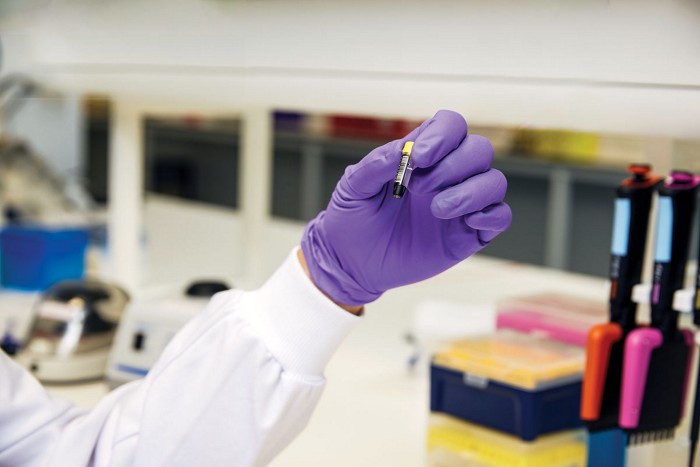Advertisement
Grab your lab coat. Let's get started
Welcome!
Welcome!
Create an account below to get 6 C&EN articles per month, receive newsletters and more - all free.
It seems this is your first time logging in online. Please enter the following information to continue.
As an ACS member you automatically get access to this site. All we need is few more details to create your reading experience.
Not you? Sign in with a different account.
Not you? Sign in with a different account.
ERROR 1
ERROR 1
ERROR 2
ERROR 2
ERROR 2
ERROR 2
ERROR 2
Password and Confirm password must match.
If you have an ACS member number, please enter it here so we can link this account to your membership. (optional)
ERROR 2
ACS values your privacy. By submitting your information, you are gaining access to C&EN and subscribing to our weekly newsletter. We use the information you provide to make your reading experience better, and we will never sell your data to third party members.
Start-ups
Flagship launches Quotient Therapeutics, its first UK startup
In both Cambridge, Massachusetts, and Cambridge, England, the firm will hunt for new drug targets in the genetic diversity of individual cells
by Laura Howes
November 22, 2023

Quotient Therapeutics emerged from stealth Nov. 21 with $50 million in funding from the life science investment firm Flagship Pioneering. Quotient’s platform hunts for new drug targets by using sensitive genetic sequencing that explores the genetic variation between individual cells. The firm will have its main base in Cambridge, England, close to three of its scientific cofounders at the Wellcome Sanger Institute.
“There’s been a revolution in drug development over the last 20-plus years following the sequencing of the human genome,” says Quotient’s president, Jake Rubens. But he says that finding new drug targets requires a more fine-grained study of variation on the cellular level.
“Each of us has not one genome, but trillions of genomes inside of each of our bodies,” Rubens says. Each cell has an average of 2,000 mutations, he notes. “That means that every single base in our human genome is mutated roughly 30 million times across our body. And there’s five times more genetic diversity inside of each of our livers than there is in the germline of the entire world’s population.”
To seek out these variations, Quotient scientists first identify and isolate individual cells in a tissue that seem to have favorable or deleterious changes. They then sequence the DNA of those cells using technology that can detect low levels of mutation. Computation then helps sift out typos that either cause disease or give cells a favorable benefit.
After finding variations that could be drug targets, Quotient starts to look more like any other drug discovery company, Rubens says—though one that is keeping its options open regarding therapeutic areas and drug modalities. So far, he says, the team has found and validated targets in areas including infectious disease, autoimmunity, immuno-oncology, and cardiometabolic disease. The firm is also active in neurodegeneration, rare diseases, and aging, he adds.
Quotient is striking for being the first Flagship company with significant research operations outside the US. The Cambridge site currently hosts 20 genomic scientists who comprise the core of Quotient’s platform. The translational research group is based in Cambridge, Massachusetts.


Join the conversation
Contact the reporter
Submit a Letter to the Editor for publication
Engage with us on Twitter